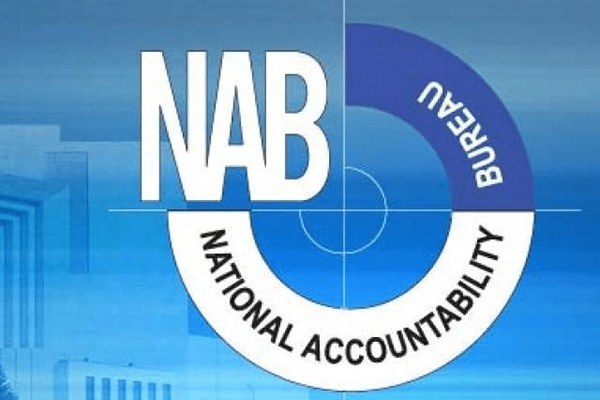
File photo
Opposition slams clause allowing extension of NAB chairman’s tenure and vows to contest ‘black’ law at appropriate forums
Over a year since the expiration of the National Accountability (Amendment) Ordinance, 2019, President Arif Alvi on Wednesday signed the National Accountability (Amendment) Ordinance, 2021, enabling the reappointment or extension of the incumbent NAB chairman’s tenure and excluding several government functionaries from the anti-graft watchdog’s ambit.
The ordinance, which comes into effect immediately, excludes from NAB’s ambit matters related to procedural lapses that do not result in any material benefit for public office-holders; federal and provincial cabinets, business community and collective decisions of committees or sub-committees, Council of Common Interests, National Economic Council, National Finance Commission, Executive Committee of National Economic Council, Central Development Working Party, Provincial Development Working Party, Departmental Development Working Party and State Bank of Pakistan. Persons or entities without any connection to public-office holders are also no longer subject to NAB investigations.
It states that “all matters pertaining to federal, provincial or local taxation, other levies or imposts, including refunds, or loss of exchequer pertaining to taxation” will be dealt with in accordance with relevant revenue or banking laws and will be transferred from accountability courts to the courts of competent jurisdiction.
A key change in the ordinance is the decision to allow for extension to the tenure of the NAB chairman, which has been described by opposition leaders as a means to continue a policy of political victimization under incumbent Javed Iqbal. It also allows for the incumbent chairman to continue in their role until a new chairman has been appointed.
Contrary to rumors, the ordinance has retained the requirement of consultations between the Opposition Leader and the Leader of the House in the National Assembly to appoint a new NAB chairman. However, unlike the earlier requirement of one-on-one consultations, the new ordinance states that the president would consult them and serve as a go-between.
The ordinance has also increased the role of the opposition and enhanced parliamentary oversight, establishing a 12-member parliamentary committee to appoint the NAB chairman if consultations between the prime minister and opposition leader do not achieve consensus.
Under the new legislation, the authority of NAB’s prosecutor general has been strengthened, increasing their advisory role for filing or withdrawing any reference from court. It has also allowed accountability courts to grant bail to any accused, a reverse from the current situation wherein bail could only be applied from high court after 90 days’ physical remand had expired.
The president, meanwhile, has been empowered to establish as many accountability courts as he deems necessary for the functioning of NAB. In this regard, retired judges of high courts could be appointed as accountability judges, as could district and sessions judges and additional district and session judges, with the consent of the chief justice of the concerned high court.
In a press conference unveiling the ordinance, Law Minister Farogh Naseem and Information Minister Chaudhry Fawad Hussain said that it would allow NAB to focus on “mega corruption” cases and reduce fears of harassment among the business community and bureaucracy.
Opposition reacts
“Extension of NAB chairman’s term is not only illegal but has malicious intent,” Pakistan Peoples Party Chairman Bilawal Bhutto-Zardari wrote on Twitter. “Selected government wants to continue victimization of opposition while ensuring the P.M., his family, government and cronies continue to be immune from accountability, especially post-Pandora Papers,” he said, referring to the international investigation that has revealed the offshore assets of several sitting government officials.
Pakistan Muslim League (Nawaz) spokesperson Marriyum Aurangzeb, meanwhile, described the ordinance as a “black” law and vowed that the party would challenge it at appropriate forums. “PML-N completely rejects this ordinance as it is based on mala fide intentions … the ordinance has been promulgated to forward the government’s agenda of political revenge,” she added in her statement and warned that it would lead to anarchy and chaos.
The Awami National Party has also rejected any extension to the tenure of the NAB chairman, saying it is a violation of the Constitution.
